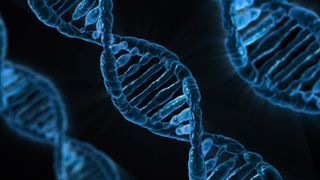Genetics
How To Explain How Genes Affect Politics
There are lots of ways, but I like this explanation.
Posted July 23, 2017

Hooray for the Morapians! I have no idea who they are, but they’ve helped make the effect of genes on politics much clearer.
I just read an article that I really like for that very reason. The theoretical value of this article by Peter Beattie at University of California, Irvine is it confirms that both genes and environment affect people’s political ideology.
Using one method, twin studies, researchers have found that genes explain a remarkable amount of the variability in a number of political preferences and behaviors: political ideology (56 percent), egalitarianism (50 percent), right-wing authoritarianism (48 percent), attending protests (35 percent), contacting public officials (52 percent), and making financial contributions (44 percent).
We academic researchers like to have lots of different evidence that X affects Y, particularly when the effect is unexpected or controversial. And the idea that genes affect political ideology was unexpected when initially published in a high-profile political science journal, and it remains controversial today despite substantial evidence.

Besides offering more evidence that genes affect political ideology, Peter's article provides the evidence using a novel method to identify genetic similarity (oh, and introduces us to the imaginary country of Morapia, which he uses in an experiment). As an academic researcher, then, I think the article is effective and useful, which is a good indicator of the value of any research publication.
But that’s not why I like this article so much. Many critics of “genopolitics” incorrectly believe that researchers in this field argue that genes “determine” political preferences and ignore other well-known environmental forces in politics such as social status, consuming media, and discussing politics with friends and co-workers.
This is clearly wrong. Political preferences and behavior are the result of both genes and environment. Genopolitical researchers know this and make environmental factors an important part of their research but do not always articulate it as clearly as Beattie does in his article.
Here’s his explanation:
A child born in the United States with a generations-long right-wing pedigree, whom we would expect to have whatever genetic endowment produces a predisposition to right-wing ideas, would merely have a tendency to develop right-wing ideology; that tendency may go unexercised (or if exercised, unrealized) if the child were to grow up surrounded exclusively by left-wing ideas from friends, teachers, media, and political elites.
He comments further, but that’s as understandable an explanation about this idea as I’ve seen in quite a while. Bravo, Peter!
If you want to find out who the Morapians are, you can get more information at Cambridge University Press: Peter Beattie. “The ‘chicken-and-egg’ development of political opinions: The roles of genes, social status, ideology, and information.” Politics and the Life Sciences 36: 1-13.
Can’t get enough of biology and political ideology? Check out these other posts:
"Our Genes and Anti-Immigration Attitudes"
"Could Disgust Make You an Environmentalist?"
"What Your Fingers May Say About Your Politics"
"On One Hand You’re an Authoritarian, on the Other Hand You’re Not"


